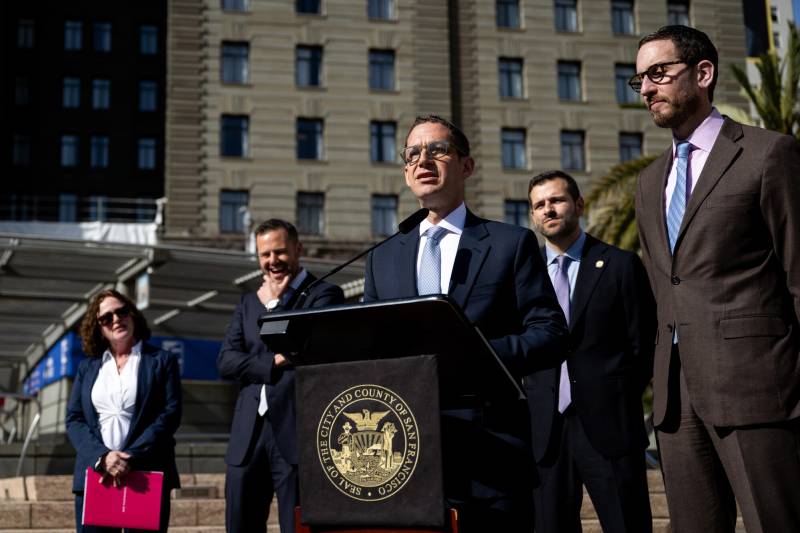In San Francisco, more people consume fentanyl through smoking rather than injecting. While overdose rates remain at devastating levels, research shows that smoking is less likely to lead to an overdose or soft tissue infections that can come from using needles.
“Safer smoking supplies, for me, are really the best possible solution to prevent someone from injecting their drug of choice,” said Tyler TerMeer, CEO at the San Francisco AIDS Foundation. “My fear — the fear of many harm reductionists in the city — is that if we are to tailor back safer smoking suppliers, that folks will begin injecting their drug again. And injection does then lead to potential rise in HIV infection, rise in hepatitis infection and rise in soft tissue infection.”
A large body of research shows that safe needle exchanges have historically been a powerful tool to prevent overdose and disease while also connecting drug users to health services and treatment.
But in more recent years, the drug supply has shifted towards fentanyl, an opioid about 50 times more potent than heroin.
“As the drug supply changed in our city, as we entered a fentanyl crisis and as folks started smoking fentanyl, we began providing safer smoking supplies,” TerMeer said. “The reason we’ve made such significant progress in this city (cutting down on HIV infections) is because we have leaned into many different approaches.”
The research supporting safe smoking supplies is smaller than the decades of research that exists for needle exchanges. But it is growing and state guidelines have already adopted safe smoking supplies as a pillar of addressing the current drug overdose crisis.
In 2018, California’s health law was amended to expand the scope of harm reduction supplies so that health providers can distribute safer smoking supplies as well.
Lurie stressed the city’s current approach is not working.
“Fentanyl has changed the game, and we’ve been relying on strategies that preceded this new drug epidemic, which ends today,” Lurie said.
Department of Public Health Director Dan Tsai said the city is basing its directive in science and underscored that clean needle exchanges will remain unchanged. When asked at Wednesday’s press conference, he could not identify research showing that requiring counseling in order to obtain safe use supplies could lead to decreased overdoses or increased connections to treatment.
“We are committed to proven, evidence-based health interventions and safer-use supplies are most effective when paired with counseling, healthcare and access to treatment and recovery services to create meaningful change for an individual,” he said.
The Department of Public Health plans to monitor changes in overdose rates, HIV/Hepatitis C transmission “to ensure this policy aligns with overall public health goals,” a press release reads.
The policy goes into effect on April 30.


